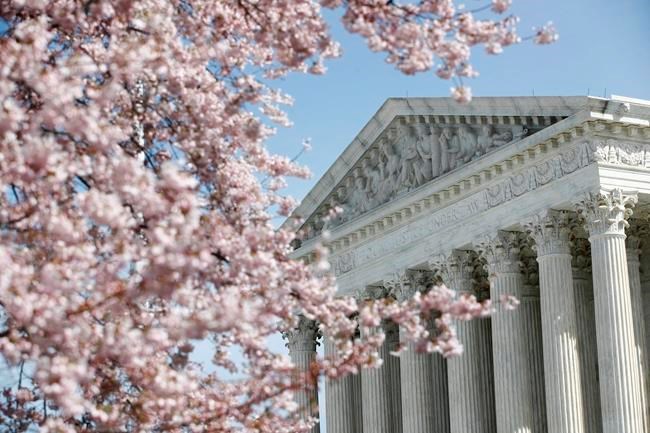The Supreme Court on Friday announced it is postponing arguments scheduled for April because of the coronavirus, but the court didn’t rule out hearing some arguments within months.
The announcement means a total of 20 arguments scheduled for March and April, including fights over subpoenas for President Donald Trump’s financial records, have now been postponed. The court said in a statement that it would consider rescheduling some cases before the end of the term “if circumstances permit in light of public health and safety guidance at that time.”
The court typically stops hearing arguments in April but continues to issue opinions in May and June before taking a break for the summer. The court resumes hearing arguments in October. The court did not say when a decision would be made about which cases might be rescheduled or exactly when they might be heard.
“The Court will consider a range of scheduling options and other alternatives if arguments cannot be held in the Courtroom before the end of the Term,” the statement said.
That seemed to leave open the possibility the court could hear arguments via audio or video link, the first time that would happen.
The court’s announcement follows Trump’s decision to extend social distancing guidelines through the end of April, which included the two-week span in which the court was to hear arguments.
The decision to postpone additional arguments does not affect high-profile cases about LGBT rights, protections for young immigrants, abortion and guns that were argued during the fall and winter, and await resolution.
The high court previously announced it would postpone 11 arguments that would have been heard over the past two weeks.
The nine arguments the justices postponed Friday included cases about whether presidential electors must support the popular vote winner in their states or can choose someone else. In another postponed case, the justices are to decide whether to allow the Trump administration to enforce rules that let more employers deny insurance coverage for contraceptives to women. A lower court ruling had blocked the administration from enforcing the rules.
Responding to the virus has meant changes for the usually tradition-bound court. The court building itself has been closed to the public since mid-March. The justices have still been meeting for private discussions of cases, including a meeting Friday, though that meeting has been by phone rather than in person. And for the last two weeks the court has posted new opinions online, but the justices haven’t taken the bench to issue them in a public session, their usual practice.
Six of the nine justices are in the group considered higher risk of getting sick from the coronavirus since they are age 65 and older. For most people, the new virus causes only mild or moderate symptoms, such as fever and cough. And the vast majority of people recover. But for some, especially older adults and people with existing health problems, it can cause more severe illness, including pneumonia.
The court’s oldest members are 81-year-old Stephen Breyer and 87-year-old Ruth Bader Ginsburg, who has had multiple bouts with cancer, including surgery in 2018 that involved removing part of her left lung and treatment in 2019 for a
Supreme Court spokeswoman Kathleen Arberg said Friday that all the justices are healthy. Ginsburg, for her part, has continued to work out at the court. “At Justice Ginsburg’s request, the Court has set aside the limited private space next to its health facility for Justice Ginsburg to exercise. Her doctors share her view that the training sessions are essential to her well-being,” Arberg said in a statement earlier this week, adding that that the space was being used exclusively by the justice, who works out with her longtime personal trainer.
The court had postponed arguments before this year but not in more than a century. In 1918, when the court still met inside the Capitol, arguments were postponed for a month because of the flu pandemic. In the nation’s early years, in August 1793 and August 1798, adjustments were made because of yellow fever outbreaks, the court has said.
Jessica Gresko, The Associated Press



